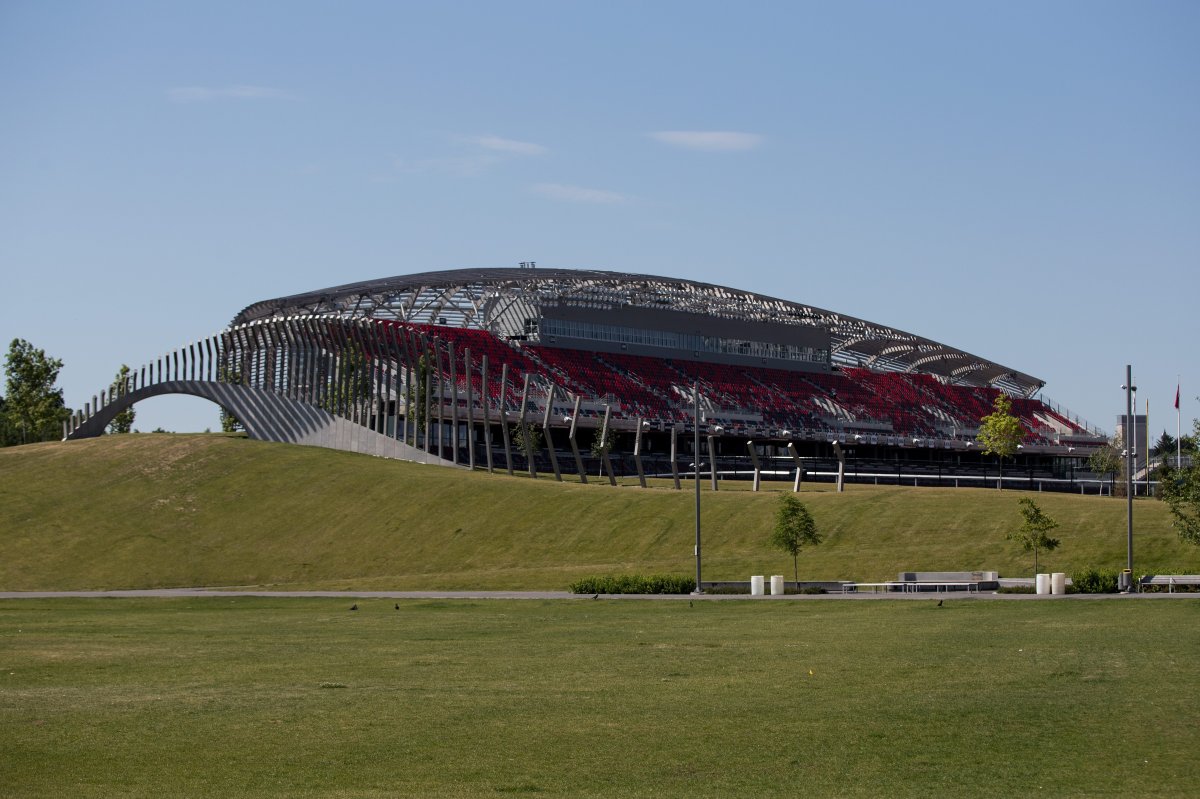The owners of Ottawa’s Redblacks football team and the 67s hockey club say the teams will indeed play in the capital past 2030 — pending council approval on a restructured deal between the city and the ownership group on the operations of Lansdowne Park.

The Ottawa Sports and Entertainment Group (OSEG) — owners of the CFL’s Redblacks and the OHL’s 67s — sent a letter to Ottawa Mayor Jim Watson and sports commissioner Mathieu Fleury on Monday committing to field the city’s two prominent sports clubs for an extra 10 years.
But the extension is contingent on Ottawa council approving a change to the city’s deal with OSEG at Wednesday’s council meeting, a proposal aimed at helping the group manage its financial challenges during the novel coronavirus pandemic.
Watson and Fleury had sent a letter to OSEG last week, asking the ownership group to make a commitment to the future of sports in Ottawa before signing off on the new deal, which was approved by the city’s finance committee in November.
Fleury told Global News last week that the commitment to an extra decade of the Redblacks and the 67s in Ottawa is critical for him to support the proposal, which would see OSEG dip into its lifecycle reserve fund for Lansdowne Park maintenance and extend the horizon of the public-private partnership by an extra 10 years to 2054.
“I want a sport commitment,” he said on Thursday.
The 10-year extension goes past OSEG’s original eight-year commitment to field the teams as part of the redevelopment of Lansdowne Park, which came online in 2014.
Roger Greenberg, one of the group’s ownership partners, said during last month’s committee meeting that fielding the teams and revitalizing the derelict city land was not a financial decision, but was rather about “giving back to the community.”
As such, he wrote in his letter that the OSEG partners will remain committed to sports in Ottawa past the extra 10 years.
“It is also our intention for the teams to continue playing on for many decades beyond that,” he wrote.
While many delegations came out last month to advocate in favour of altering the deal because of the civic benefits the teams have provided, others suggested Ottawa’s love for the Redblacks could cloud council’s judgment.
“The football team is so important to the city that we’re willing to go to extreme lengths to prop up the private return and not consider what it’s costing us,” said economist Angella MacEwen during the meeting.
Critics of the deal, which will see OSEG continue to lease the city-owned land for $1 annually, have said it’s inappropriate to make long-term changes to a public-private partnership in the midst of the pandemic’s economic uncertainty.
City staff who studied the proposal said it was the best choice for Ottawa, taking into consideration both the long-term operating costs and the financial burden the city would take on should OSEG default on its loans.

Some community members had suggested approving the access to emergency funds but putting off any hard decisions on extending the partnership horizon.
The OSEG partners plan to inject an additional $40 million into the project and said last month that making changes to the deal now would give them the confidence to continue with their investments.
Another change to the deal would see the city waive its right to terminate OSEG’s retail lease without cause — something the partners said would affect their ability to attract a third-party investor as a silent partner in that segment.
Lansdowne’s finances were struggling even before the pandemic hit, with the partnership posting an $11 million loss in the last fiscal year and the city no longer expecting to recoup its accrued interest on the deal.
The proposed changes would also see a working group of OSEG reps and city staff come together to figure out how to turn Lansdowne into a more viable business prospect.





Comments